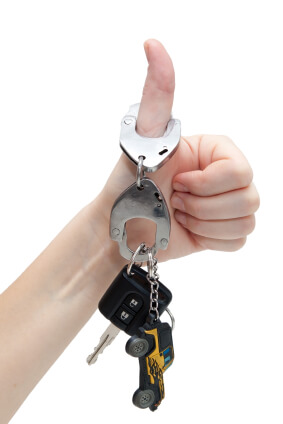Your brain, the delicate central computer controlling your entire existence, is suspended in a thin and watery liquid called cerebrospinal fluid. This fluid acts as a shock absorber, protecting the brain and creating a stable environment for it.
Sometimes, when you receive an impact to the head, your brain is jostled around inside of your skull. In some instances, this jostling of the brain results in what is known as a concussion.
In this blog, we’ll explain what exactly a concussion is, what symptoms to look for if you suspect a concussion may have occurred, and what medical and legal steps you need to take following a concussion.
Understanding Concussions and Spotting the Symptoms
A concussion is a type of traumatic brain injury caused by sudden impacts to the head, commonly experienced in car accidents and falls. Direct impacts, whiplash, and even the deployment of airbags can all cause these unfortunate injuries.
When a concussion occurs, the brain bounces and/or twists inside the skull. This sudden, violent motion can damage brain cells and nerves within the brain and lead to chemical imbalances.
While concussions are usually not life-threatening, they are still extremely serious. Studies have shown that multiple successive concussions can lead to issues with attention, concentration, memory, and judgment.
So, what are the telltale signs of a concussion? Some symptoms you should be on the lookout for are:
Physical:
- Headache or pressure in the head
- Ringing in the ears
- Nausea or vomiting
- Feeling unusually tired or drowsy
- Blurry or double vision
- Dizziness
- Possible loss of consciousness (not always)
Cognitive:
- Confusion or feeling “foggy”
- Trouble remembering what happened
- Slow response to questions
- Slurred speech
- Difficulty thinking clearly or focusing
Behavioral / emotional:
- Irritability or mood swings
- Feeling sad, emotional, or depressed
- Personality changes
- Difficulty sleeping
Many of these symptoms will show up right away. Others may take hours or even days to reveal themselves.
Protecting Your Health and Legal Rights
Concussions are extremely common. It’s estimated that between one and three million people visit the emergency room with a concussion each year in the United States.
Some of the most common causes of concussions include youth sports incidents, assault, and most relevant to the purposes of our firm: slip and falls and auto accidents.
If you’ve noticed one or more of the symptoms listed above following a slip and fall or auto accident, there are some specific steps you should take to ensure a full recovery and maximum compensation for your hardship.
Receiving care:
It’s important to seek medical attention as soon as possible following a slip and fall or auto accident, especially when a concussion is suspected.
Even if no other injuries are accompanying a suspected concussion, it’s still important that you get checked out right away.
It’s recommended that you do not drive following a concussion. Getting a loved one to take you to the hospital or taking an ambulance is the safe and responsible course of action.
Once in contact with a medical professional you should:
- Explain the cause of your suspected concussion
- Indicate whether or not you lost consciousness
- Note any memory loss or seizures that may have accompanied the concussion
- Note any previous concussions you may have experienced
All of these points can influence a health care provider’s assessment of your injury and plan of action for recovery.
Following your initial assessment, it’s a good idea to take it easy, follow the recommended recovery guidelines, and set up a follow-up appointment with your medical provider. It’s important that you consult with your medical provider before returning to normal activities like driving, work, and sports.
Documenting your experience:
As with any personal injury, documentation is key. This could not be more true than in the case of concussions. In addition to documenting the facts of your accident to the best of your ability, you should:
- Document exactly what symptoms you are experiencing
- Document exactly when symptoms occur
- Document how your symptoms progress (if they get better or worse)
- Document any work, activities, or commitments that you may have been unable to do as a result of your concussion
- Document the providers you saw, when you saw them, and what they told you
- Asking a doctor to record your conversation with them is a great way to make sure you don’t miss any important details.
Although this may seem like a lot of work, it’s crucial information that your attorney will need access to if you decide to pursue a lawsuit following your slip and fall or auto accident.
Get David Get Paid
Although concussions lack the clearly-visible symptoms that lacerations and broken bones present, they are still extremely serious. This is especially true in the context of a personal injury lawsuit.
Following a concussion, you may not be functioning at 100% cognitively or emotionally. Your ability to advocate for yourself may be diminished drastically. That’s why you need an experienced attorney. That’s why you need Femminineo Law.
The team at Femminineo Law has handled every type of traumatic brain injury case over the last 30 years. From minor head bumps to full on life altering accidents, we’ve been exposed to it all. You can rest assured that with Femminineo Law on your side, you’ll have your best shot at major compensation.
Give us a call at 855-65-CRASH or visit our website today.
Get David. Get Paid.



